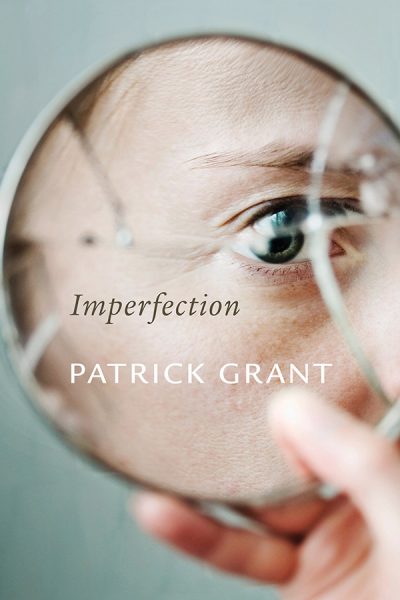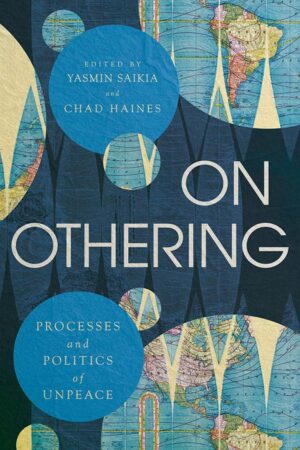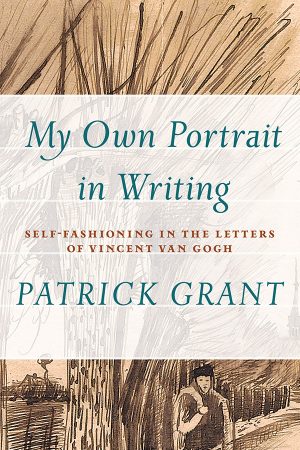Subjects: Literary Theory and Criticism, Peace and Conflict Studies, Philosophy
Series: Cultural Dialectics
Imprint: AU Press
- 9781926836751 (paperback)
- 9781926836768 (pdf)
- 9781926836775 (epub)
“…aspirations to perfection awaken us to our actual imperfection.” It is in the space between these aspirations and our inability to achieve them that Grant reflects upon imperfection. Grant argues that an awareness of imperfection, defined as both suffering and the need for justice, drives us to an unrelenting search for perfection, freedom, and self-determination. The twenty-one brief chapters of Imperfection develop this governing idea as it relates to the present situation of the God debate, modern ethnic conflicts, and the pursuit of freedom in relation to the uncertainties of personal identity and the quest for self-determination.
Known for his exploration of the relationship between Buddhism and violent ethnic conflict in modern Sri Lanka, as well as his contribution to the study of Northern Ireland and the complex relationships among religion, literature, and ethnicity, Grant provides the reader with an analysis of the widespread rise of religious extremism across the globe. Referencing Plato, Van Gogh, Jesus, and the Buddha, he enlightens the reader with both succinct and original insights into human society. Imperfection is the result of an important Canadian public intellectual at work.
Imperfection draws on philosophy, art, film, psychology and mysticism among others, I can’t think of another book that combines such spread of reference, such succinctness, and such depth of concern without losing weight or coherence, notwithstanding its –shall we call it?–wisdom .
John Wilson Foster, Queen’s University, Belfast
Awards
- 2014, Short-listed, Canada Prize in the Humanities, Federation for the Humanities and Social Sciences
Table of Contents
- Preface
- Introduction
- Part I. Imperfection
- 1. Plato and the Limits of Idealism
- 2. The Van Gogh Letters: The Art of the Unfinished
- 3. The Trouble with Visions
- 4. Northern Ireland, Sri Lanka, and Regressive Inversion
- 5. Osama, Theo, and the Burnt Fool’s Bandaged Finger
- 6. What the Buddha Didn’t Say
- 7. Not So Good News: The Gospel According to Mark
- Part II. Self
- 8. Immortal Souls and State Executions
- 9. The Eyes Have It: Seeing One’s Self and Others
- 10. The God of Battles and the Irish Dimension of Shakespeare’s Henry V
- 11. Crucifying Harry: Victims, Scapegoats, and the Northern Ireland Troubles
- 12. Talking to the Cyclops: On Violence and Self-Destruction
- 13. Doing Nothing About It: Taoism, Selflessness, and Non-Action
- 14. Cliff Jumpers and Delta Dwellers: On Religious Language and Commitment
- Part III. Freedom
- 15. Dr. Johnson, Freedom, and the Book of Psalms
- 16. Sex, Society, and Romeo and Juliet
- 17. Cartoons from Denmark and the March of the Zombies
- 18. Vergil and the Almighty Dollar
- 19. Endgame in Sri Lanka: Dharmapala’s Legacy and Rajapaksa’s War
- 20. Jung and The Secret of the Golden Flower
- 21. Kieslowski’s Red: Fraternity in the Making
- Bibliographical Notes
This work is licensed under a Creative Commons License (CC BY-NC-ND 2.5 CA). It may be reproduced for non-commercial purposes, provided that the original author is credited.

![[book cover] The ABCs of Human Survival](https://www.aupress.ca/app/uploads/120173_The-ABCs-of-Human-Survival-cover-275x450.jpg)

![[book cover] Wild Words](https://www.aupress.ca/app/uploads/120153_Wild-Words-cover-300x450.jpg)
